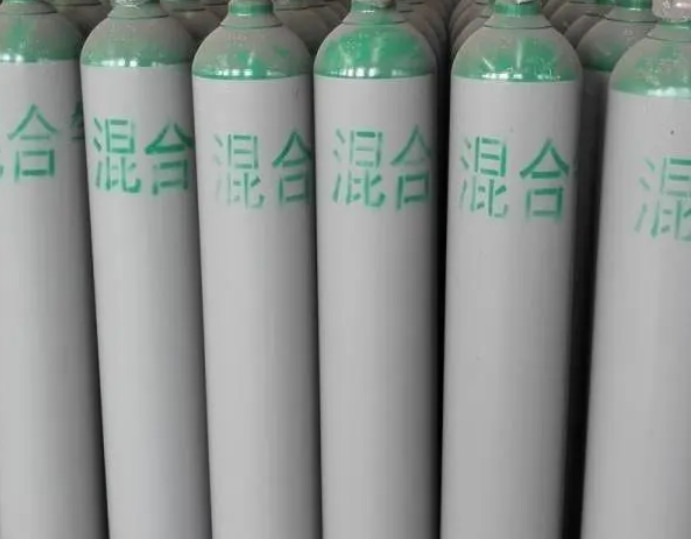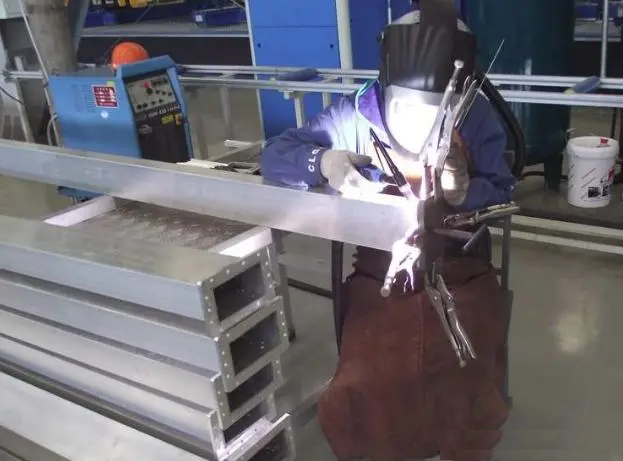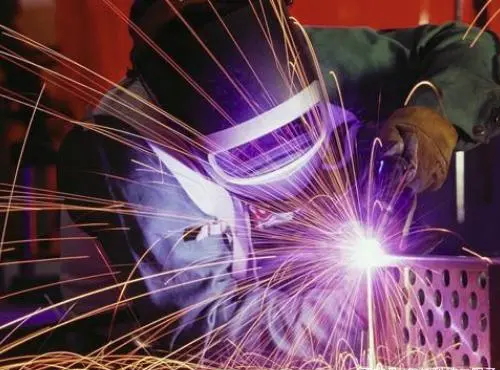Welding mixture gas, also known as mixed gas shielded welding, is a gas used in the welding industry and a gas shielded welding method. Mixed gas refers to a protective gas composed of two or more gases configured in combination.
Welding mixture gas is a new industrial welding technology developed with the widespread application of manual welding and automatic welding. This welding technology can effectively improve welding efficiency, control a small amount of welding spatter, improve welding forming, prevent excessive defects, and reduce the rate of gas hole generation. Therefore, the emergence of this welding method swept the world's welding processes.
In the process of using mixed gas welding technology, we found that using materials with phase matching and mixed gases can further increase welding efficiency, which includes various mixed gases, such as argon helium mixture, argon hydrogen mixture, argon nitrogen mixture, argon+carbon dioxide mixture, and so on. These gases can better exert their effects on the corresponding welding materials. Next, we will introduce which mixed gases correspond to each type of material.

Carbon steel and low alloy steel
Mixed gas component: (argon+oxygen) Mixed gas
Gas mixing ratio: (1% -5%) oxygen and residual argon gas; 20% oxygen and residual argon gas
Melting pole
1. Mixed gas component: (argon+carbon dioxide) Mixed gas
Gas mixing ratio: 20% -30% carbon dioxide, residual argon gas; 95% argon+residual carbon dioxide
2. Mixed gas components: (argon+carbon dioxide+oxygen) Mixed gas
Gas mixing ratio: 80% argon+15% carbon dioxide+5% oxygen; 2% oxygen+5% carbon dioxide+remaining argon
3. Mixed gas components: (carbon dioxide+oxygen)
Gas mixing ratio: 20% -25% oxygen and residual carbon dioxide
Aluminum and aluminum alloys
Mixed gas component: (argon+helium) Mixed gas
Gas mixing ratio: 26% -90% helium and residual argon; 75% helium+25% argon
Titanium zirconium and its alloys
Mixed gas component: (argon+helium) Mixed gas
Gas mixing ratio: 75% argon+25% helium
Copper and copper alloys
Mixed gas component: (argon+helium) Mixed gas
Gas mixing ratio: 50% argon+50% helium; 70% argon+30% helium

Melting and tungsten electrodes
Mixed gas component: (argon+nitrogen) Mixed gas
Gas mixing ratio: 80% argon+20% nitrogen
Stainless steel high-strength steel
Mixed gas component: (argon+oxygen) Mixed gas
Gas mixing ratio: 1% -2% oxygen and residual argon
Nickel based alloy
Mixed gas component: (argon+helium) Mixed gas
Gas mixing ratio: 15% -20% helium and residual argon

Melting and tungsten electrodes
Mixed gas component: (argon+hydrogen) Mixed gas
Gas mixing ratio: 0-6% hydrogen gas and residual argon gas
Nowadays, the welding industry mostly uses mixed gas welding because welding mixed gas can improve welding quality, reduce welding heating effect, and reduce oxidation reaction of welding materials. And now gas welding has good welding quality, higher efficiency than ordinary manual welding, and can achieve automated welding processes with relatively simple operations. With these advantages, this welding technology has been able to develop rapidly.
Contact: M.K
Phone: (86)13322904877
Tel: (86)400 8481088
Email: 1519017318@qq.com
Add: 3rd Floor, Building 2, No. 1801 Meijie Road, Zhuhai City, Guangdong Province
